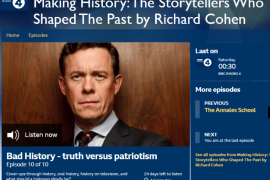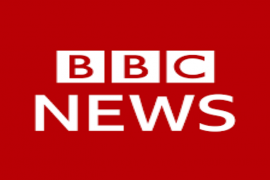As we all too often have cause to note on these pages, the BBC’s editorial guidelines on impartiality include a section titled ‘Contributors’ Affiliations’ which states:
“4.3.12 We should not automatically assume that contributors from other organisations (such as academics, journalists, researchers and representatives of charities and think-tanks) are unbiased. Appropriate information about their affiliations, funding and particular viewpoints should be made available to the audience, when relevant to the context.”
Nevertheless, that guideline is all too often ignored in the corporation’s Israel-related content, with the result being that audiences hear ostensibly ‘expert’ opinions on a particular story without having been made aware of the agenda of the contributor or the body he or she represents. NGOs are inherently agenda-driven organisations that make no claim to provide unbiased information and are obviously not committed to the BBC’s editorial standards. When political agendas and journalism meet, questions obviously arise concerning accuracy, impartiality and reliability and one of the few safeguards in place comes in the form of that section of the BBC editorial guidelines on impartiality titled ‘Contributors’ Affiliations’.
Since the beginning of this year we have submitted several complaints to the BBC citing that clause in the editorial guidelines and a rather disturbing pattern has emerged, particularly in relation to content aired on the BBC World Service radio programme ‘Newshour’.
On January 24th ‘Newshour’ aired an interview with Omar Shakir of the political NGO Human Rights Watch. Shakir was introduced merely as “Israel and Palestine director for Human Rights Watch”, with no information provided concerning that political NGO’s “affiliations, funding and particular viewpoints” or Shakir’s own record as a supporter of the anti-Israel BDS campaign.
BBC WS RADIO IGNORES EDITORIAL GUIDELINES IN YET ANOTHER VACCINATIONS ITEM
CAMERA UK submitted a complaint on that issue on January 28th but received no acknowledgement. On February 15th we resent the complaint – again with the same result. On February 23rd we therefore wrote to the BBC’s Editorial Complaints Unit and on the same day we received the following reply:
“Your original complaint from 28 January has been logged in the BBC’s complaints database under CAS-6519065 and the subsequent one from 15 February in CAS-6551052. I’m afraid I can’t tell you why an auto acknowledgement appears not to have been sent but I’ll draw this to the attention of the technical team.
Your complaints are currently with the World Service complaints team so you should receive a response in due course.”
However, almost six months on, we have not heard a word from either the World Service complaints team or BBC Complaints.
On February 11th ‘Newshour’ aired an interview with a representative of the political NGO ‘Medical Aid for Palestinians’ who was introduced as follows:
“Aisha Mansour is the West Bank director for Medical Aid for Palestinians.”
BBC AGAIN FLOUTS IMPARTIALITY GUIDELINES TO PROMOTE POLITICAL CAMPAIGN
Listeners were told nothing of the “funding and particular viewpoints” of Medical Aid for Palestinians (MAP), including the fact that in March 2020 Aisha Mansour collaborated with anti-Israel political groups exploiting the Coronavirus pandemic for the promotion of a campaign demanding an end to the counter-terrorism measures imposed on the Gaza Strip.
Neither were BBC audiences informed of the fact that a month before the broadcast MAP had joined a political campaign that exploited the topic of vaccines (to which the BBC gave considerable amplification) or that the NGO was at the time promoting a petition in the UK to pressure “Foreign Secretary Dominic Raab to urgently press Israel to uphold its duty to ensure rapid, equitable and comprehensive access to COVID-19 vaccines for the Palestinian people”.
CAMERA UK submitted a complaint on that issue on February 13th and received an acknowledgement including a case number (P5W5D2) on the same day. Since then we have heard nothing further.
On March 3rd ‘Newshour’ aired an interview with a contributor who was described as follows:
“Victor Kattan is from the school of law at Nottingham University here in the UK.”
OMISSION IN BBC REPORTING ON ICC INVESTIGATION ANNOUNCEMENT
Listeners were not told that the person twice laconically described only as being from Nottingham University is also a policy advisor for Al Shabaka, a former employee of Badil and a former legal adviser to the Palestinian Negotiations Support Project which advises the PLO.
As we noted at the time, one would of course have expected that Kattan’s writings on the topic of the ICC (which include the claim that “A Palestinian state existed prior to 1967”) would have prompted the ‘Newshour’ production team to comply with BBC editorial guidelines concerning ‘contributors’ affiliations’ but that was not the case. Not only were listeners told nothing of Kattan’s “particular viewpoints”, they were wrongly led by presenter Tim Franks to believe that he is an impartial academic.
CAMERA UK submitted a complaint on that issue on March 10th but no acknowledgement was received. We therefore resubmitted the complaint on March 14th and on the same day received an acknowledgement and a case number (B1S6G9). Once again, that was the last we heard in relation to that complaint.
Last year the BBC reported that its licence fee-funded World Service radio content in English was reaching a weekly global audience of 97 million people and ‘Newshour’ is considered to be the station’s flagship news and current affairs programme.
The fact that editorial guidelines concerning contributors’ affiliations are repeatedly ignored on that programme is hence a cause for concern. The fact that complaints on that issue have repeatedly disappeared down the rabbit hole of the publicly funded BBC Complaints system should be no less perturbing to a media organisation which touts itself as trustworthy and transparent.






This need to be raised with a UK MP by a person who lives in his constituency – he is obliged to provide a response.
Try Mike Freer or Mathew Offord, Finchley and Hendon respectively, mike.freer.mp@parliament.uk or matthew.offord.mp@parliament.uk
It is clear that the Board of Deputies of British Jews, the Jewish Leadership Council, the Office of the Chief Rabbi etc should be involved but they tend to bury their heads in the sand for their own egos and are not concerned with the LONGEST HATRED
they want their OBE’s
It’s quite clear that there is no longer any reason to consider the BBC as anything other than a mouthpiece for antisemitism and Pallywood propaganda. History is all very well, and the BBC built up a reputation for accuracy and impartiality during the middle of the last century, but its current employees and contract broadcasters have spent the last twenty years tearing down that reputation. The complex complaints procedure is a good example of its snooty, nose-in-the-air, approach to its previous public service mandate, and is a good reason to completely defund it. It’s a long time since I bought a TV licence.
The BBC is a prime example of why NO government funds or involvement should be involved in a broadcast entity. There is no such thing as “impartial” broadcasters no matter how they try to portray themselves. NPR in the U.S. while not totally funded by the government does have some funding extended by the Federal government.